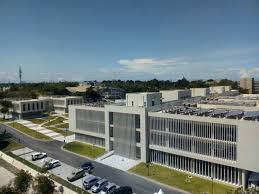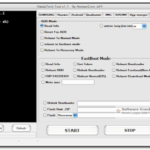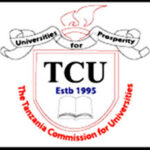Best Top 10 Universities in Tanzania. Webometric networks recently released quality standards for universities around the world, a publication that included 5,000 universities from various nations. These quality standards took into account various issues including checking the websites of the respective colleges for relevant information as well as research publications, academic publications, creative works and other professional information at the international level. In that list, the universities of Tanzania have not performed well, as the first highest ranking university is the University of Dar es Salaam (UDSM) which ranks 1913 in the world, while the 42nd highest in Africa.
Best Top 10 Universities in Tanzania
Below is a list of the Best Top 10 Universities in Tanzania according to the network. At the forefront is the position of the college in Africa:
1. University of Dar es Salaam (UDSM) – 42

The University of Dar es Salaam (UDSM) is a public university in Dar es Salaam, Tanzania. It was established in 1961 as an affiliate college of the University of London. The university became an affiliate of the University of East Africa (UEA) in 1963, shortly after Tanzania gained its independence from the United Kingdom. In 1970, UEA split into three independent universities: Makerere University in Uganda, the University of Nairobi in Kenya, and the University of Dar es Salaam
UNDERGRADUATE
The University of Dar es salaam (UDSM) offers various academic programmes leading to the award of certificates, diplomas, and degrees.
POSTGRADUATE
The University of Dar es salaam offers various postgraduate programmes leading to the award of postgraduate diploma, masters and PhD degrees.
INTERNATIONAL STUDENTS
The University of Dar es Salaam values the presence of international students and scholars and recognizes the important role they play in the life of the university.
For more visit www.udsm.ac.tz
2. Sokoine Agricultural University (SUA) – 51

Sokoine University of Agriculture was first established on the 1st July, 1984 by Parliamentary Act No. 14 of 1984 through the amendment of Parliamentary Act No 6 of the same year. Following repealing of the Act, the university is now operating through the Sokoine University of Agriculture Charter, 2007 through the broad framework of the Universities Act, 2005.
The history of Sokoine University of Agriculture dates back to 1965 when it started as an Agricultural College offering diploma training in the discipline of agriculture.
After the dissolution of the University of East Africa and the consequent establishment of the University of Dar es Salaam (UDSM) in July 1970, the College was transformed into a Faculty of Agriculture of University of Dar Es Salaam (UDSM) and thereby started offering Bachelor of Science in Agriculture.
For more visit SUA website www.sua.ac.tz
3. Muhimbili University of Health and Allied Sciences (MUHAS) – 91

The Muhimbili University of Health and Allied Sciences (MUHAS) started as the Dar es salaam medical school in 1963. The school then transformed into the faculty of medicine of the university of Dar es salaam that in 1991 was upgraded and became a college–the Muhimbili University College of Health Sciences (MUCHS).
In 1996, the Faculty of Medicine that was upgraded to a constituent College of the University of Dar es Salaam, with the aim of nurturing it to a full-fledged university later on was merged with the Muhimbili hospital to create the Muhimbili Medical Centre (MMC).
For more information visit MUHAS University website www.muhas.ac.tz
4. University of Dodoma (UDOM) – 174

The University is located about 8 km east of the city centre, and is accessible by public transport, which is easily available from the city centre. Given the central location of Dodoma, UDOM is strategically positioned to serve applicants around the country and specifically Government and private sector employees living in Dodoma, who hitherto could not find training opportunities in the area.
Such employees can comfortably utilise UDOM to combine work and study for their career advancement. Additionally, the geographical location and Dodoma weather render UDOM a convenient place for international students.
For more information visit official University website www.udom.ac.tz
5. Mzumbe University- 203

Mzumbe University was established by the Mzumbe University Charter, 2007 under Section 25 of the Universities Act. No. 7 of 2005 which repealed Mzumbe University Act. No 9 of 2001. As a Training Institute, the University boasts of over 50 years experience of training in the administration of justice, business management, public administration, accountancy, finance, political science and good governance.
6. Catholic University College of Health Sciences (CUHAS) – 219
The Catholic University of Health and Allied Sciences – Bugando (CUHAS-BUGANDO) is located at Bugando Hill, within the Bugando Medical Centre (BMC) premises in Mwanza. Our core business is training, research and consultancy services. We train health professionals in the fields of Medicine, Pharmacy, Medical Laboratory Sciences, Nursing and Public Health through our Diploma, Bachelor, Masters and PhD programmes. Our students include local and international/foreign students from all walks of life.
We work in close partnership with the Bugando Medical Centre (BMC) in the training of our students and in offering services that address the challenges within the Lake Zone, thus contributing to the Health Sector in a purposeful and meaningful way.
7. National University of Zanzibar (SUZA) – 256
The State University of Zanzibar (SUZA) was established by Act No. 8 of 1999 of the Zanzibar House of Representatives which was then amended by Act No. 11 of 2009, and further re-amended by Act No. 7 of 2016.
The latter amendment has justified SUZA to merge with other Zanzibar higher learning institutions; these are the then Zanzibar Institute of Financial Administration (ZIFA), College of Health Sciences (CHS) and the Zanzibar Institute of Tourism Development (ZIToD). His Excellency Dr. Ali Mohamed Shein, the President of Zanzibar and Chairman of the Revolutionary Council is the Chancellor of the University. The Univ
8. Ardhi University- 265
Land University is a public university located in Dar es Salaam, Tanzania. It was officially launched on March 28, 2007, although it has been training for over 60 years now. It is located close to the University of Dar es Salaam, where it was a participating university from 1996 to 2007.
9. Nelson Mandela University of Science and Technology (NM -AIST) – 280
The Nelson Mandela African Institution of Science and Technology (NM-AIST) in Arusha is one in a network of Pan-African Institutions of Science and Technology located across Sub-Saharan Africa (SSA). These institutions, which are the proud brainchild of the late Nelson Mandela, envision training and developing the next generation of African scientists and engineers with a view to impacting profoundly on the continent’s development through the application of Science, Engineering and Technology and Innovation (SETI).
The NM-AIST, which is accredited by the Tanzania Commission for Universities (TCU) is being developed into a world class research intensive institution for postgraduate and post-docs studies and research in SETI. The training in SETI, however, incorporates appreciable doses of relevant business studies and humanities ingredients.
Thus the training curricular also incorporate strong innovation and entrepreneurship features, and hence strong academia-industry relations are part of the NM-AIST’s development agenda. NM-AIST’s curricular also seek to accommodate, enable, stimulate and catalyze the innovation and entrepreneurship qualities inherent in the Y-generation for the benefit of SSA’s sustainable development
10. Tumaini Makumira University – 286
Tumaini University Makumira (TUMA) is a Christ-Centred University focusing all its programmes through the guidance of and obedience to the word of God by conducting and promoting higher education, learning, and research, through scientific fact finding and enquires to all students without any form of discrimination.
Some stakeholders who commented on the list, for example, Tanzanian colleges are not doing well have said that it should be noted that their Webometric does not look at the quality criteria of the profession, but look at the websites of the respective colleges to see if they have information and publications, to see if lecturers collaborate with their internationally. Stakeholders have urged universities and other educational institutions to increase the use of Information and Communication Technology (ICT) to keep transparency in international operations and enable these colleges and institutions to hold higher positions.





